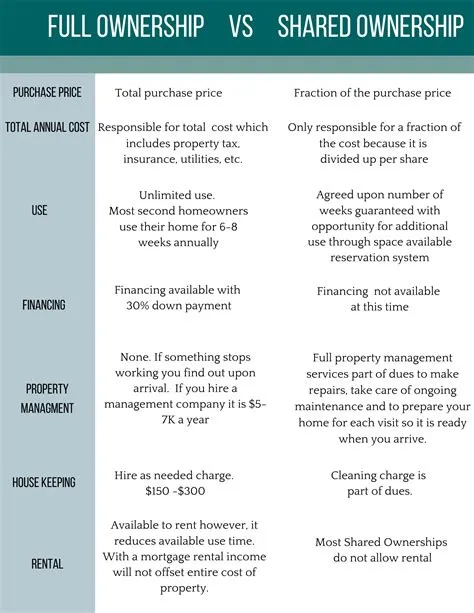Hey there! Ever feel like you’re juggling chainsaws while riding a unicycle? Life can be a whirlwind, right? Between work deadlines, family commitments, and the general chaos of modern living, it’s easy to let your mental well-being slip down the priority list. But what if I told you there’s a simple, accessible way to prioritize your mental fitness – all from the palm of your hand? We’re talking about mental fitness apps!
These aren’t just another fad; they’re powerful tools that can help you navigate the ups and downs of life with more resilience, focus, and overall happiness. Think of them as your personal mental health coaches, always available to offer guidance and support. But with so many apps vying for your attention, how do you choose the right one for you? That’s where this guide comes in. We’ll explore what these apps offer, how they work, and help you find the perfect fit for your needs.
What Exactly Are Mental Fitness Apps?
Imagine a gym membership, but for your mind. That’s essentially what mental fitness apps provide. They offer a range of tools and techniques designed to improve your mental and emotional well-being. This can include:
Guided meditations: Learn to quiet the mental chatter and find inner peace through guided meditations, often tailored to specific needs like stress reduction or sleep improvement. It’s like having a personal meditation instructor in your pocket.
Mindfulness exercises: Develop greater awareness of your thoughts and feelings in the present moment. Think of it as a mental workout that strengthens your ability to stay grounded and centered.
Mood trackers: Monitor your emotional patterns over time to identify triggers and develop coping strategies. It’s like having a personal data analyst for your emotions – empowering you to understand yourself better.
Cognitive trends">behavioral Therapy (CBT) techniques: Learn practical strategies to challenge negative thought patterns and develop healthier coping mechanisms. This is like giving you a toolbox to rebuild your mental resilience.
Personalized programs: Many apps offer personalized programs based on your individual needs and goals, making the experience more effective and engaging. It’s like having a tailored fitness plan designed specifically for your mind.
Sleep improvement tools: Address sleep difficulties through guided sleep meditations, relaxation techniques, and sleep tracking features. Getting enough sleep is fundamental to mental well-being, and these tools can be invaluable.
Why Use a Mental Fitness App?
Why bother downloading an app when you could just… well, not? Several compelling reasons exist:
Accessibility: Mental health support isn’t always readily accessible or affordable. Apps offer convenient and often affordable (or even free) access to tools and techniques.
Convenience: Need a quick meditation break? Feeling anxious? These apps are available anytime, anywhere, eliminating barriers to self-care.
Anonymity: For some, the thought of seeking professional help can feel daunting. Apps provide a safe and anonymous space to explore mental well-being.
Progress tracking: Many apps allow you to track your progress over time, providing a sense of accomplishment and motivation to continue your journey. Seeing tangible results is incredibly motivating!
Variety: There’s an app for almost every mental health need, meaning you can find one tailored to your specific challenges and preferences.
Choosing the Right Mental Fitness App:
With so many options available, choosing the right app can feel overwhelming. Consider these factors:
Your specific needs: Are you struggling with stress, anxiety, sleep, or something else? Choose an app that addresses your particular challenges.
App features: Do you prefer guided meditations, CBT techniques, or mood tracking? Look for an app that offers the features you find most useful.
User interface: Is the app easy to navigate and use? A user-friendly interface can significantly enhance your experience.
Reviews and ratings: Check app store reviews to get a sense of other users’ experiences.
Cost: Many apps offer free versions with limited features, while others require a subscription. Consider your budget and the features you’re willing to pay for.
How to Maximize Your App Experience:
Even the best app won’t work magic unless you use it consistently. Here are some tips for maximizing your experience:
Set realistic goals: Don’t try to do too much too soon. Start with small, achievable goals and gradually increase the intensity and duration of your practice.
Make it a habit: Schedule time each day for your mental fitness routine, just like you would any other important appointment.
Be patient and persistent: It takes time and effort to develop new habits and see results. Don’t get discouraged if you don’t see immediate changes.
Experiment and adjust: If one app or technique isn’t working for you, try something else. There’s no one-size-fits-all solution to mental well-being.
Consider professional help: While apps are valuable tools, they are not a replacement for professional mental health care. If you’re struggling with severe mental health issues, seek help from a qualified therapist or psychiatrist.
The Bottom Line: Mental Fitness Apps Are Your Allies
Think of these apps as your personal mental health cheerleaders, quietly working alongside you to cultivate a more balanced and joyful life. They are powerful tools that can equip you with the skills and strategies you need to navigate life’s challenges with greater ease and resilience. They’re not a quick fix, but a sustained commitment to your well-being. So, take a deep breath, explore the world of mental fitness apps, and embark on a journey toward a happier, healthier you. Isn’t that worth a try?
Conclusion:
Mental fitness apps offer a readily accessible and convenient pathway to improving your mental and emotional well-being. By providing a range of tools and techniques, these apps empower you to take control of your mental health and cultivate a more balanced and fulfilling life. Remember, prioritizing your mental fitness isn’t selfish; it’s essential for living a thriving life. So, dive in, explore the options, and find the app that’s the perfect fit for your journey to a happier you!
FAQs:
1. Are mental fitness apps safe? Most reputable mental fitness apps prioritize user privacy and data security. However, always review the app’s privacy policy before downloading and using it. Remember, if you have concerns, consult a healthcare professional.
2. Do I need a doctor’s recommendation to use a mental fitness app? No, you generally don’t need a doctor’s recommendation to use a mental fitness app. However, if you have a pre-existing mental health condition, it’s always a good idea to discuss your plans with your doctor or therapist to ensure the app complements your existing treatment plan.
3. Can mental fitness apps replace therapy? No, mental fitness apps are not a replacement for professional therapy. They can be a valuable supplement to therapy, but they shouldn’t be used as the sole treatment for serious mental health conditions.
4. How much do mental fitness apps cost? The cost of mental fitness apps varies widely. Some offer free versions with limited features, while others require a subscription. Many offer free trials to allow you to test the app before committing to a subscription.
5. What if I don’t see results immediately? Building healthier mental habits takes time and consistency. Don’t be discouraged if you don’t see immediate results. Be patient, persistent, and remember to celebrate your progress along the way. If you’re concerned after a reasonable period, consult your doctor or therapist.

